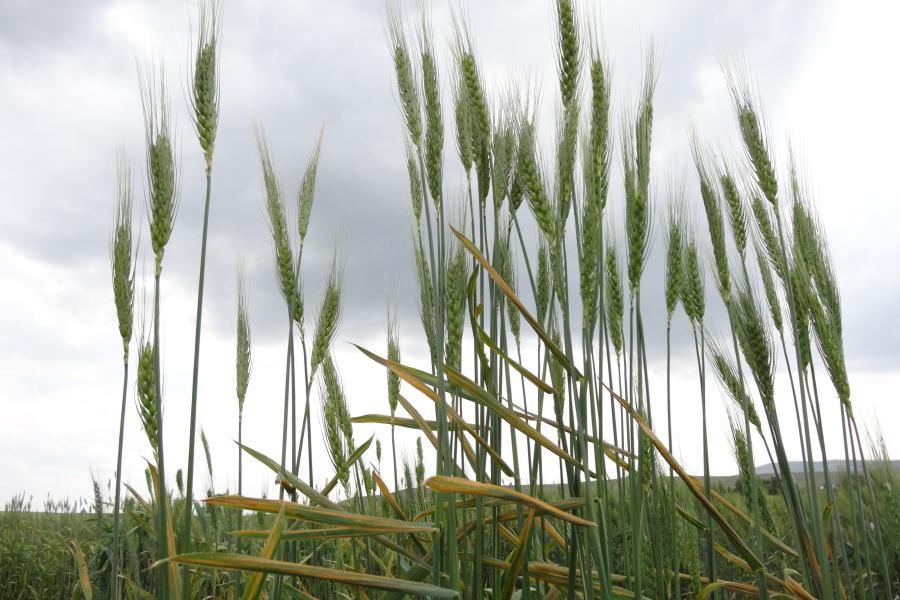FAO empowers farmers in Tajikistan to combat wheat rust through targeted trainings
26 May 2025
26 May 2025, Dushanbe - The Food and Agriculture Organization of the United Nations (FAO) has successfully concluded a series of practical trainings designed to strengthen the capacity of farmers, field agronomists, and technical officers in the prevention, diagnosis, and management of wheat rust diseases in Tajikistan.

Conducted under the project “Strengthening regional collaboration and national capacities for surveillance and management of wheat rust diseases in Central Asia and the Caucasus (CACRust),” the training sessions took place across Khatlon and Sughd regions and the city of Hisor. The initiative targeted selected farms and local agricultural experts, as part of a broader effort to boost national preparedness and regional cooperation in addressing the threats posed by wheat rust diseases.
Implemented by FAO with the support of the FAO–Türkiye Partnership Programme (FTPP), the CACRust project aims to reduce the impact of rust diseases—particularly stem, stripe, and leaf rust—which continue to pose serious risks to wheat production and food security across the region.
The training programme introduced participants to Integrated Pest Management (IPM) approaches, emphasizing prevention through the use of rust-resistant wheat varieties, early field-based diagnosis, and improved surveillance and monitoring. The sessions also covered the timely and safe application of fungicides to reduce potential crop losses.
In addition, dedicated training modules for technical officers focused on advanced surveillance methodologies, data collection, and enhancing communication between national plant protection services and farming communities.
“Wheat rust continues to challenge our agrifood systems. Through these trainings, FAO is equipping farmers and agricultural experts with the tools and knowledge required for early and effective action. Strengthening local expertise is key to sustainable disease management and long-term food security in the region,” said Aghasi Harutyunyan, FAO Representative a.i. in Tajikistan.
Participants expressed appreciation for the practical, hands-on nature of the training and the relevance of region-specific guidance. FAO remains committed to supporting Tajikistan and the wider Central Asia and Caucasus region in building resilient agrifood systems and ensuring sustainable food security.
About the FAO–Türkiye Partnership Programmes
The FAO–Türkiye Partnership Programmes support countries in achieving food security, reducing rural poverty, promoting sustainable forest management, combating desertification, and conserving ecosystems in Azerbaijan, Kazakhstan, Kyrgyzstan, Tajikistan, Türkiye, Turkmenistan, Uzbekistan, and other countries of mutual interest.
Established in 2007, the first phase of the FAO–Türkiye Partnership Programme on Food and Agriculture (FTPP) was supported by a USD 10 million trust fund from the Government of Türkiye, represented by the Ministry of Agriculture and Forestry. Between 2009 and 2015, 28 projects were implemented across 16 countries.
In 2014, Türkiye and FAO launched the second phase of the FTPP, along with the first phase of the FAO–Türkiye Forestry Partnership Programme (FTFP), with an additional USD 20 million in funding—bringing Türkiye’s total contribution to USD 30 million.

